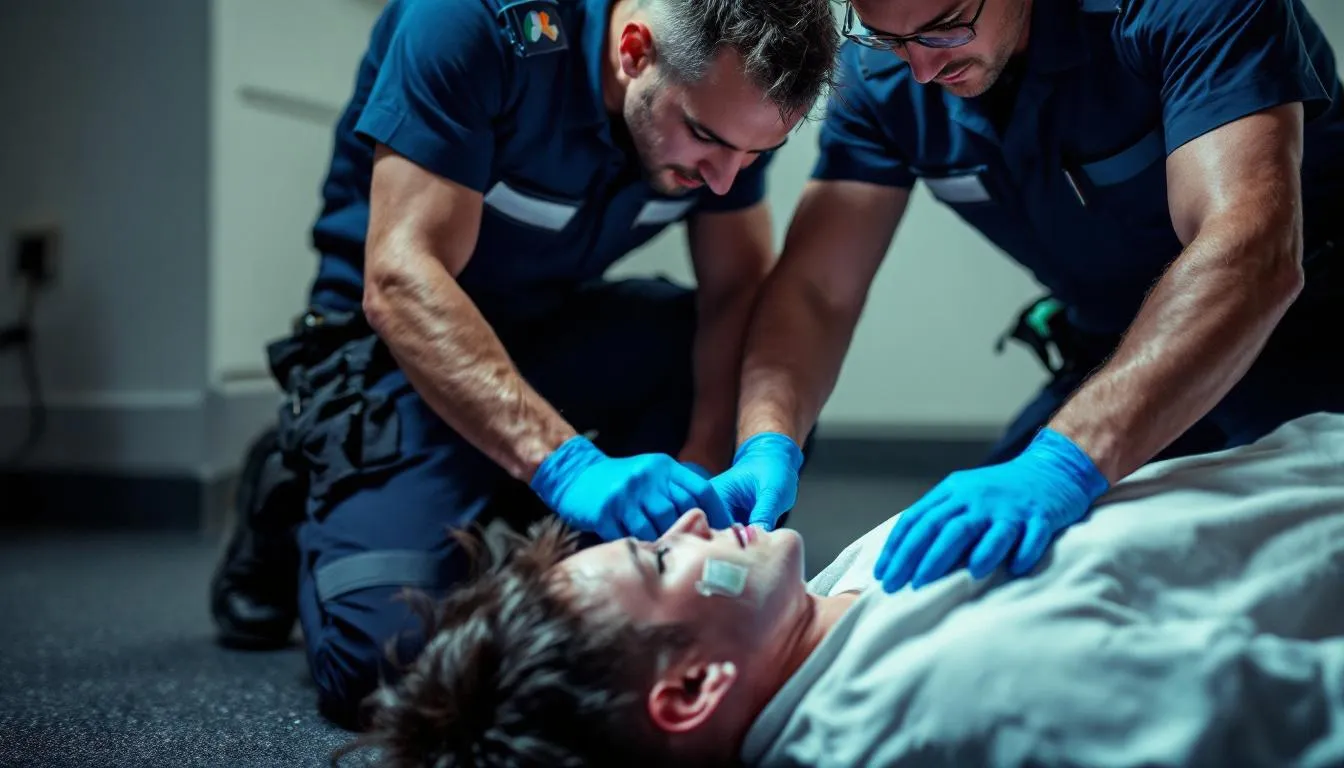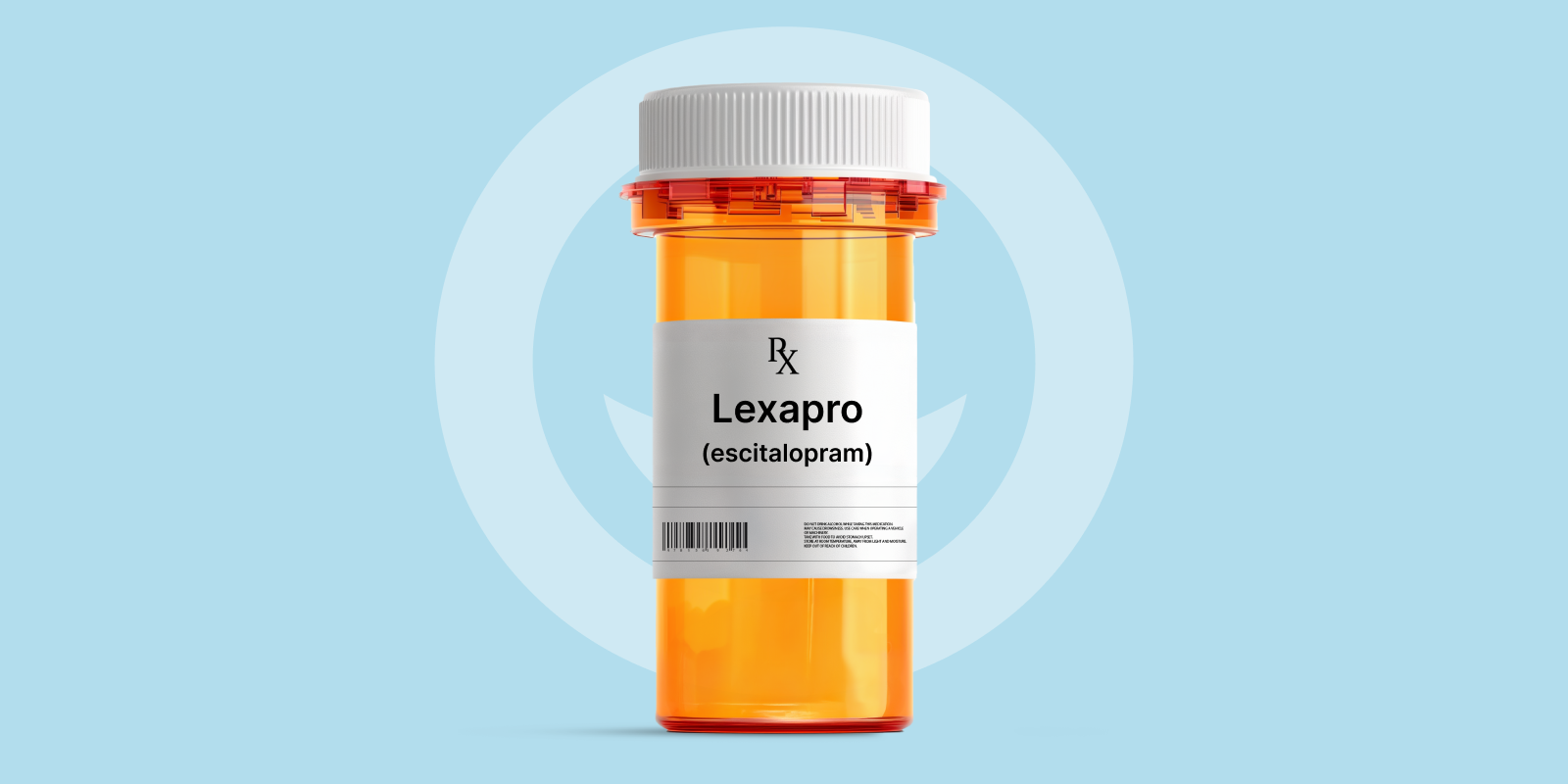Yes, you can overdose on Lexapro. This antidepressant, commonly prescribed for depression and anxiety, can cause serious health complications if taken in excessive amounts. In this article, we will discuss the symptoms of a Lexapro overdose, the appropriate actions to take if you can you overdose on Lexapro, and measures to prevent it.
 Lexapro, known generically as escitalopram, is classified as a selective serotonin reuptake inhibitors (SSRIs), a commonly prescribed type of antidepressant. Its primary function is to treat major depressive disorder, generalized anxiety disorder, and panic disorder by increasing serotonin levels in the brain, which helps alleviate symptoms of depression and anxiety. This adjustment in serotonin levels can significantly improve mood and emotional stability, making it a critical tool to treat depression and depressive disorders, alongside tricyclic antidepressants.
Lexapro’s benefits are not immediate. It typically takes several weeks to months to feel the full effects of the medication. This delayed onset can sometimes lead to frustration or impatience, but adherence to the prescribed regimen is crucial for achieving the best outcomes. Regular follow-ups with healthcare providers ensure that the dosage is appropriate and adjustments can be made if necessary.
Suddenly discontinuing Lexapro can cause withdrawal symptoms and many may experience withdrawal symptoms such as irritability, mood changes, dizziness, and sensory disturbances. Thus, altering the medication regimen should always be guided by a healthcare professional to ensure safety.
Lexapro, known generically as escitalopram, is classified as a selective serotonin reuptake inhibitors (SSRIs), a commonly prescribed type of antidepressant. Its primary function is to treat major depressive disorder, generalized anxiety disorder, and panic disorder by increasing serotonin levels in the brain, which helps alleviate symptoms of depression and anxiety. This adjustment in serotonin levels can significantly improve mood and emotional stability, making it a critical tool to treat depression and depressive disorders, alongside tricyclic antidepressants.
Lexapro’s benefits are not immediate. It typically takes several weeks to months to feel the full effects of the medication. This delayed onset can sometimes lead to frustration or impatience, but adherence to the prescribed regimen is crucial for achieving the best outcomes. Regular follow-ups with healthcare providers ensure that the dosage is appropriate and adjustments can be made if necessary.
Suddenly discontinuing Lexapro can cause withdrawal symptoms and many may experience withdrawal symptoms such as irritability, mood changes, dizziness, and sensory disturbances. Thus, altering the medication regimen should always be guided by a healthcare professional to ensure safety.
 If you suspect a Lexapro overdose, immediate action is critical. The first steps are:
If you suspect a Lexapro overdose, immediate action is critical. The first steps are:
Key Takeaways
- Lexapro, an SSRI, treats depression and anxiety but requires consistent adherence to prescribed dosages to avoid overdose and withdrawal symptoms.
- Recognizing overdose symptoms such as unusual drowsiness, nausea, and potential serotonin syndrome is crucial for timely intervention and minimizing long-term effects.
- Preventing Lexapro overdose involves open communication with healthcare providers, avoiding alcohol, and using medication management tools to ensure proper dosage adherence.
Understanding Lexapro
 Lexapro, known generically as escitalopram, is classified as a selective serotonin reuptake inhibitors (SSRIs), a commonly prescribed type of antidepressant. Its primary function is to treat major depressive disorder, generalized anxiety disorder, and panic disorder by increasing serotonin levels in the brain, which helps alleviate symptoms of depression and anxiety. This adjustment in serotonin levels can significantly improve mood and emotional stability, making it a critical tool to treat depression and depressive disorders, alongside tricyclic antidepressants.
Lexapro’s benefits are not immediate. It typically takes several weeks to months to feel the full effects of the medication. This delayed onset can sometimes lead to frustration or impatience, but adherence to the prescribed regimen is crucial for achieving the best outcomes. Regular follow-ups with healthcare providers ensure that the dosage is appropriate and adjustments can be made if necessary.
Suddenly discontinuing Lexapro can cause withdrawal symptoms and many may experience withdrawal symptoms such as irritability, mood changes, dizziness, and sensory disturbances. Thus, altering the medication regimen should always be guided by a healthcare professional to ensure safety.
Lexapro, known generically as escitalopram, is classified as a selective serotonin reuptake inhibitors (SSRIs), a commonly prescribed type of antidepressant. Its primary function is to treat major depressive disorder, generalized anxiety disorder, and panic disorder by increasing serotonin levels in the brain, which helps alleviate symptoms of depression and anxiety. This adjustment in serotonin levels can significantly improve mood and emotional stability, making it a critical tool to treat depression and depressive disorders, alongside tricyclic antidepressants.
Lexapro’s benefits are not immediate. It typically takes several weeks to months to feel the full effects of the medication. This delayed onset can sometimes lead to frustration or impatience, but adherence to the prescribed regimen is crucial for achieving the best outcomes. Regular follow-ups with healthcare providers ensure that the dosage is appropriate and adjustments can be made if necessary.
Suddenly discontinuing Lexapro can cause withdrawal symptoms and many may experience withdrawal symptoms such as irritability, mood changes, dizziness, and sensory disturbances. Thus, altering the medication regimen should always be guided by a healthcare professional to ensure safety.
Potential for Lexapro Overdose
Yes, Lexapro overdose is possible, and recognizing this risk is essential for anyone on this medication. The potential for overdose exists particularly when the prescribed dose is not followed. For instance, in documented cases, consuming an amount eleven times higher than the recommended dose has led to severe symptoms, underscoring the importance of adhering strictly to medical advice. Overdosing on Lexapro can lead to a potentially life-threatening condition known as serotonin syndrome, characterized by high levels of serotonin in the body. This condition can cause a range of severe symptoms, from rapid heart rate and high blood pressure to confusion and muscle rigidity. Regular communication with your healthcare provider helps minimize overdose risk, particularly if combined with other serotonergic drugs or antidepressants. The reasons for Lexapro overdose can vary. An accidental overdose might occur due to a simple mistake, such as forgetting a dose and then doubling up later. Intentional overdoses, on the other hand, are often linked to severe emotional distress or mental health crises. Regardless of the cause, understanding the signs and risks associated with Lexapro overdose is the first step toward prevention.Recognizing Lexapro Overdose Symptoms
Recognizing the symptoms of a Lexapro overdose early can be life-saving. Common signs include unusual drowsiness, nausea, vomiting, and palpitations. These symptoms can escalate quickly, leading to more severe manifestations such as seizures, loss of coordination, and muscle rigidity. In some cases, individuals may experience feelings of their thoughts moving slowly, a racing heart, or a sensation of their body shutting down. One of the most dangerous complications of Lexapro overdose is serotonin syndrome. This condition can result in:- fever
- muscle stiffness
- confusion
- rapid heartbeat
- seizures
Immediate Actions During a Suspected Overdose
 If you suspect a Lexapro overdose, immediate action is critical. The first steps are:
If you suspect a Lexapro overdose, immediate action is critical. The first steps are:
- Provide emergency responders with the patient’s age and weight to facilitate appropriate medical care.
- While waiting for help to arrive, keep the patient calm.
- Monitor their symptoms closely to help prevent further complications and provide valuable information to healthcare providers upon their arrival.
Long-Term Effects of Lexapro Overdose
The long-term effects of a Lexapro overdose can be profound and varied. High levels of serotonin resulting from an overdose can lead to serious conditions such as fever and confusion, which may persist even after immediate symptoms are managed. This excessive serotonin release can have dangerous effects on the body’s systems, requiring ongoing medical attention. One of the potential long-term consequences is the development of irregular heart rhythms, which necessitate continuous monitoring and possible long-term treatment. In mild cases, patients may only require hydration and monitoring for a few hours before being discharged, but consistent follow-up care is essential to ensure full recovery. Mental health support is also crucial after an intentional Lexapro overdose. The emotional and psychological impacts can be significant, necessitating long-term therapy and support. Recovery timelines can vary widely, ranging from days to weeks or even months, highlighting the need for a robust support system throughout the recovery process.Prevention Tips for Safe Lexapro Use
Preventing Lexapro overdose involves:- Adhering to the prescribed dosage.
- Maintaining open communication with healthcare providers.
- Taking Lexapro exactly as prescribed to ensure effective treatment and minimize overdose risk.
- Using dosing reminders and medication management tools to avoid accidental double-dosing and missed doses.
Medical Treatment for Lexapro Overdose
If a Lexapro overdose is suspected, immediate medical attention is necessary. Contact emergency services without delay and provide them with as much information as possible about the patient’s condition and the suspected overdose. This information is vital for healthcare providers to administer the most effective treatment. Treatment typically involves:- Managing symptoms
- Monitoring vital signs
- Ensuring the patient’s airways are clear
- Administering intravenous fluids to address dehydration and hypotension, which can occur during a significant overdose
- Using most medications and other medications to stabilize the patient’s heart rate and blood pressure
